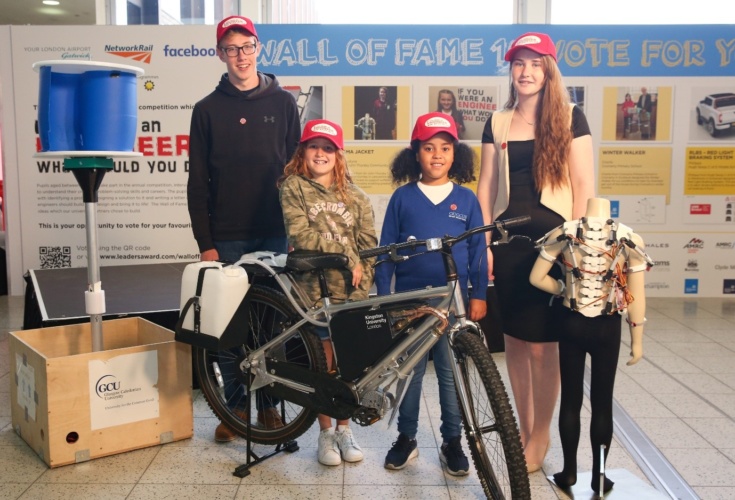
Engineering professionals across the UK are supporting both primary and secondary pupils learning via fascinating online interviews during the COVID-19 lockdown. The ‘If you were an engineer, what would you do?’ competition, known as the Leaders Award and run by Primary Engineer, is offering pupils from 3 through to 19 the opportunity to join online interviews with engineering professionals and then identify a problem in the world and design a solution to it as a home project.
Engineering professionals from across the sectors are giving an hour of their time to deliver online sessions run by Primary Engineer to talk about their profession and how and why they got into it, providing inspiration to pupils wherever they are located in the UK.
Lydia Fairman, Lead Capability and Development Manager from Network Rail, which is a national partner for the competition said: “The online interviews give pupils the chance to speak with engineering professionals and not only understand more about who they are and what they do, but discover things about engineering and what it offers to the world which they didn’t know before. Network Rail engineering professionals from around the UK and from the different parts of the business are helping young people to see what they are capable of by designing solutions to problems they see in the world. It’s truly inspirational.”
UK Director of Primary Engineer, Chris Rochester, added: “'If you were an engineer, what would you do?' enables young people to understand the creativity and ingenuity in engineering by interviewing engineering professionals and then identifying problems in the world and designing solutions to them. Last year we had over 49,000 pupils around the UK take part. These online interviews will allow more young people to ‘meet’ engineers and enter the competition during the lockdown period while schools are closed."
As an exciting conclusion each year, Primary Engineer's university partners select from the shortlisted and winning designs and teams of their engineers make them. This remarkable element to the competition sees a range of designs being brought to life and exhibited. Previous designs which have been selected and made include a flat-pack wind turbine for refugee camps and disaster areas, a bicycle which enables people to ride to a water source and pump water up through a concealed hose by pedalling backwards and an exo-skeleton jacket which replaces the muscles for sufferers of Spinal Muscular Atrophy (SMA).
“The university builds are fantastic with pupils whose designs are selected inspiring engineering teams from universities up and down the country” said Rochester. “We’ve seen trampolines which charge mobile phones to hearing devices to reduce ambient noise levels for the hearing impaired. It’s exciting for young people to think big and then see their ideas become reality. I can’t wait to see the entries this year and the ingenious solutions pupils have come up with.”
The deadline for the competition has been extended to 10 September, while the series of online interviews with engineering professionals are taking place now and will continue throughout the coming months. A full online interview schedule and the home resources can be found on the Leaders Award website: https://leadersaward.com/
“This is a great opportunity for young people to get involved with engineering based on their own interests and ideas and for engineering professionals who’d like to share a fascinating aspect of engineering with them to join in” said Rochester. “I hope that everyone reading this will share it far and wide and maybe think about signing up to do an online interview for us.”







Water Sector Talent Exodus Could Cripple The Sector
Maybe if things are essential for the running of a country and we want to pay a fair price we should be running these utilities on a not for profit...